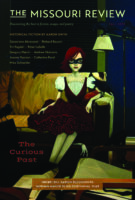Foreword | January 07, 2022
Foreword: How Did I Get Here?
Speer Morgan
“How did I get here?” is a recurring question in one of my favorite songs, “Once in a Lifetime” by the Talking Heads. It is an anthem to the uncertainty of human existence that suggests the existential feel of much of this issue.
While several post-World War II philosophers such as John-Paul Sartre, Simone de Beauvoir, and Albert Camus are called “existentialists,” they were less a school than a group of related thinkers stretching back to the nineteenth century. Their ideas are kindred but quite individual. They came from an understandable beginning, as late eighteenth-century industrialization created an urban working class. Marx was predictive of existential thought, due to the threats to individual freedom that he argued would happen in developed capitalist economies, regardless of the label used by political leaders for their economic systems.
If you are a student, faculty member, or staff member at an institution whose library subscribes to Project Muse, you can read this piece and the full archives of the Missouri Review for free. Check this list to see if your library is a Project Muse subscriber.
Want to read more?
Subscribe TodaySEE THE ISSUE
SUGGESTED CONTENT

Features
Jan 08 2024
Foreword: Family Affairs
Family Affairs During the nineteenth century, observers from both sides of the Atlantic admired the relative looseness of American families while also criticizing a lack of multigenerational connectivity and… read more

Features
Dec 19 2023
Foreword: The Curious Past
The Curious Past The past is such a curious creature, To look her in the face A transport may reward us, Or a disgrace. – Emily Dickinson Jonathan Rosen’s… read more

Features
Jul 27 2023
Foreword: The New Realism
The New Realism I sometimes wonder what the dominant trend in literature is going to be called. Names for artistic periods and movements are hardly definitive, but they are useful… read more

